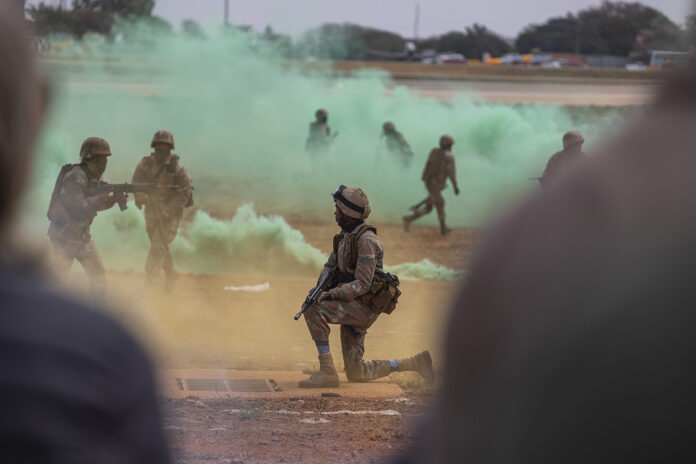Nearly 3 000 members of the South African National Defence Force who were deployed in the Democratic Republic of Congo (DRC) have vowed to take their fight for justice all the way to court if the defence department fails to pay them their outstanding deployment fees.
This amid claims that they have held defence minister Angie Motshekga hostage in protest of the non-payment.
South African National Defence Union national secretary Piekie Greef confirmed that they will go to court if their outstanding fees are not paid, dismissing rumours that soldiers had held Motshekga hostage.
“South African soldiers are patriots, and they won’t act unlawfully. They know that there are legal ways to obtain justice,” Greef said, adding that “the formal channels by law are the military bargaining council, the military arbitration board and finally the courts”.
Asked if it was true that the soldiers had held Motshekga hostage, Greed said: “I heard about those rumours.”
The disgruntled soldiers, who served on dangerous missions in the DRC, say they have grown increasingly disillusioned as their calls for payment have fallen on deaf ears.
Greef said the union was taking the matter up with the defence force management, and any suggestion to get President Cyril Ramaphosa to intervene as the Commander-in-Chief had not been brought to his attention.
The South African troops deployed to the DRC as part of the now terminated Southern African Development Community Mission reportedly expected a R108 000 per month salary for their 15 months of service. But instead, they were only paid up to R58 000 each month, which means that each soldier is missing out on hundreds of thousands of rands.
Greef explained: “There are two contributors – first the SANDF normal policy deployment allowances, which come from the defence budget, and second SADC, which paid a monthly contribution expressed as an amount in dollars ‘per soldier’ deployed on the mission – but that monthly contribution is also meant for covering equipment, expenses, etc, as well as a part for deployed soldiers.
“It’s the latter that we are questioning as to who decided what part the soldiers got, and why it was not negotiated in the military bargaining council.”
He said there were a lot of different claims being made around the issue, which required proper verification.
“Thus, we are in talks with management about how allowances were calculated and what the real amount is that should have been paid to each deployed soldier.
“Specifically, we are of the view that had the employer negotiated deployment allowances via the Military Bargaining Council as it is required by law, this matter would not have become an issue,” Greef argued.
Motshekga dismissed as untrue claims that she was held hostage, saying she was hearing about this for the first time.
Responding to claims of unrest and alleged threats, Motshekga downplayed the scale of the crisis, describing it as a matter of discrepancies among a small group of military personnel, which is being swiftly addressed.
She also disputed the amounts being claimed and assured that the Department of Defence is working to reconcile the figures.
“It is being managed by the department at human resources, just verifying the numbers and the figures,” she said.
She added that “the department always deploys, even to Mozambique recently in 2025 after their elections, meaning that they do have established standard procedures”.
According to the Department of Defence, there was no cause for alarm.
They insisted that soldiers were paid appropriately, with allowances for daily needs
provided in the field and the remainder directly deposited into their bank accounts.
“This payment method safeguards members’ earnings and prevents loss or misuse of funds while serving in high-risk operational environments,” the department said in a statement last month.



